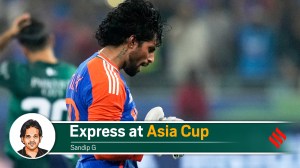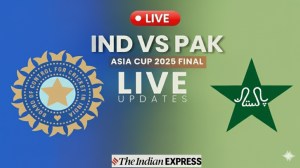It’s governance not region that matters
The regional divide in J&K has never been so deep. What the RSS-backed Jammu State Morcha’s trifurcation and the National Conference...

The regional divide in J&K has never been so deep. What the RSS-backed Jammu State Morcha’s trifurcation and the National Conference’s autonomy could not do before the recent assembly elections, the Congress and PDP have achieved.
The on-going stalemate between the Congress and the PDP over the issue of chief ministership has not only pushed the state into political uncertainty, it has divided Jammuites and Valleyites along regional lines.
Significantly, during the polls, people in both the regions braved militant threats and, cutting across their linguistic, cultural and religious lines, rejected both the trifurcation and autonomy demands. While the BJP and Morcha candidates lost in Hindu-dominated areas, the NC faced a debacle in the Muslim-dominated Valley. One reason for this was that both Hindus and Muslims, who had been living together for centuries, generally felt that these demands were aimed at creating divisions between them along communal lines. This view gets substantiated when you consider that during the last 13 years of turmoil, there has not been even a single Hindus-Muslim riot in the state despite repeated provocations by militants.
The present regional divide is a different story. The two non-NC groups, instead of arriving at a consensus over the formation of the next state government, began making public statements on who should be the next chief minister. The state Congress president, Ghulam Nabi Azad, who happens to be a resident of Doda in the Jammu region, started contacting independents and smaller groups the day after results came in. The PDP leaders, on the other hand, immediately started lobbying for a chief minister from the Valley.
Both talk of their poll promises without realising the damage they have done to the secular fabric of the state. Groups like the Jammu Joint Students Federation have now threatened to launch an agitation if the next CM is not from Jammu. Similarly, the Jammu Kashmir Panthers Party, with four MLAs, has lent support to the Congress-PDP combine provided the Congress forms the government. The repeated efforts to bring about rapproachement between both these major groups have failed so far. This had to happened given that neither was prepared to yield ground to the other. Now if the Congress withdraws in favour of PDP, the Jammuites will accuse it of having compromised their interests to appease the Kashmiris and, if the PDP relents, it apprehends that Kashmiris may turn against it for being a party to the transfer of power from the Valleyites to Jammuites.
Who is responsible for this situation? Both parties, in fact. Instead of evolving a consensus between themselves, they went public over the issue of government formation. It is true that since 1951 the state always had a PM or CM from the Valley and many there may not digest the idea of having a CM from Jammu. However, at the same time, it is also true that the state has never been faced with a hung assembly.
There can be no denying that the bruised souls of the Kashmiris need a balm, having experienced as they have constant bloodshed and destruction at the hands of Pakistan-aided militants, coupled with the rampant corruption and non-performance of the Farooq government. However, Kashmiris also realise that what they want is good governance. Had the issue of having a Kashmiri chief minister been the only one, then there was nothing wrong even with the Abdullah dynasty. In other words is is wholly misconceived to regionalise the issue of chief ministership. Whoever occupies the office will have to take care of all the three regions of J&K — Jammu, Kashmir and Ladakh.



- 01
- 02
- 03
- 04
- 05




























